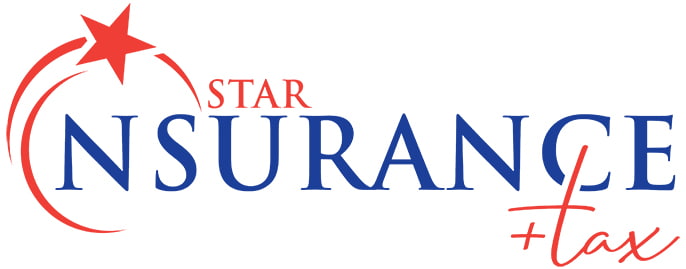
There’s something magical about the way December transforms our perspective. We close out projects at work, organize our homes, and make ambitious plans for the year ahead. We scrutinize our spending habits, evaluate our goals, and promise ourselves we’ll finally tackle those lingering financial loose ends. Yet somehow, in the midst of all this reflection and planning, one crucial expense often escapes our attention completely.
Your insurance policy renews automatically, you pay the bill without questioning it, and another year passes where you’ve potentially overpaid by hundreds or even thousands of dollars. What if I told you that the same energy you’re putting into planning your New Year’s resolutions could translate into serious savings on your car insurance, health coverage, and more?
December isn’t just the end of the year. It’s your golden opportunity to reset your insurance costs and start the new year with coverage that actually works for your budget.
Why December Creates the Perfect Storm for Insurance Savings
Most people think about switching insurance only when something forces their hand. Their rates spike dramatically at renewal. They get into an accident and realize their coverage isn’t adequate. A friend mentions they’re paying significantly less for similar coverage. These reactive moments lead to hasty decisions made under pressure.
December flips this script entirely. You’re already in planning mode, reviewing your finances to understand what you spent this year and what you can afford next year. This mental state makes December the ideal time to approach your insurance situation strategically rather than frantically.
Beyond the psychological advantages, December offers practical benefits. Many insurance companies adjust their rates at the start of the new year, which means shopping in December gives you the chance to lock in current rates before potential increases take effect. You’re also approaching this decision with a full year of driving history behind you, giving you the clearest possible picture of your actual insurance needs.
Tax season plays into this timing as well. If you’re self-employed or planning to itemize deductions, understanding your insurance costs now helps you prepare more accurate tax projections. You can coordinate your insurance review with your broader financial planning, creating a comprehensive approach rather than treating insurance as an isolated expense.
The Hidden Costs of Auto-Renewal
Auto-renewal feels convenient. One less thing to think about. But this convenience comes with a price tag that might shock you. Insurance companies understand that once you’re enrolled, inertia keeps you there. The effort required to shop around, compare quotes, and switch providers feels daunting.
This inertia tax is real money leaving your pocket. Studies consistently show that loyal customers who never shop around pay significantly more than new customers receiving promotional rates. Your insurance company isn’t rewarding your loyalty with better pricing. They’re counting on your reluctance to make a change.
The situation becomes even more frustrating when you consider how much your circumstances change from year to year. Maybe you paid off your car loan, eliminating the need for certain coverage requirements. Perhaps your credit score improved, which could qualify you for better rates.
You might have started working from home and driving less, or reached a birthday that moves you into a lower-risk category. All of these factors should reduce your insurance costs, but auto-renewal means your rates stay frozen in time, reflecting circumstances that no longer apply to your life.
December gives you the breathing room to break this cycle. You’re not responding to an emergency or scrambling to meet a deadline. You’re taking control of your insurance situation from a position of calm, informed decision-making.
Signs It’s Time to Switch Your Auto Insurance
How do you know if switching auto insurance in Lakeland, FL, or elsewhere makes sense for your situation? Certain red flags should trigger an immediate review:
Your Premium Increased Without Explanation
If your renewal notice shows a rate increase and you haven’t had any accidents, tickets, or changes to your coverage, that’s your insurance company betting you won’t question the bump. A rate increase without a corresponding increase in risk often signals that other insurers will compete for your business with better rates.
You Haven’t Shopped Around in Over a Year
The insurance market moves quickly. New companies enter offering competitive rates. Existing companies adjust their pricing models. If you haven’t compared quotes in the past year, you’re operating with outdated information. The policy that offered the best value 18 months ago might be significantly overpriced today.
Your Life Circumstances Changed
Getting married, buying a home, paying off a car loan, moving to a new address, changing jobs, or adding a teenage driver to your policy all impact your insurance needs and costs. These changes might qualify you for discounts you’re not currently receiving, or they might mean you’re paying for coverage you no longer need.
You’re Bundling Out of Habit, Not Value
Bundling multiple policies with one insurer can save money, but it’s not automatically the best deal. Sometimes splitting your auto, renters, and health insurance across different providers actually costs less than bundling everything with one company.
The December Insurance Shopping Strategy
Approaching your year-end insurance review strategically maximizes your chances of finding better coverage at better rates:
Week 1: Gather Your Current Information
Pull out your existing policy documents. Note your current coverage levels, deductibles, and premium costs. Create a list of any claims you filed this year and any life changes that might affect your rates. This foundation helps you compare quotes accurately.
Week 2: Request Multiple Quotes
Don’t settle for one or two quotes. Request quotes from at least three to five different insurers. This gives you a real sense of the market. The variation between quotes can be dramatic, sometimes showing differences of several hundred dollars annually for identical coverage.
Week 3: Compare Coverage Details
Don’t just look at the bottom-line price. Examine what each policy actually covers. Compare deductibles, liability limits, and additional features like roadside assistance or rental car coverage. The cheapest quote might have gaps that leave you vulnerable, while a moderately higher quote might provide significantly better protection.
Week 4: Make Your Decision and Switch
Once you’ve identified the best option, contact the new insurer to finalize your policy with a start date of January 1st or shortly thereafter. Always get car insurance quotes in Clearwater and the surrounding areas. Then, contact your current insurer to cancel your existing policy. Most companies will refund you the unused portion of your premium.
Understanding the Real Cost of Insurance Throughout the Year
| Month | Strategic Advantage | Potential Savings Opportunity |
| January | New promotional rates launch | High (new customer discounts) |
| February-March | Tax refund season | Medium (ability to pay annually for discount) |
| April-May | Spring renewal period | Medium (moderate competition) |
| June-July | Summer driving season begins | Low (rates may increase for season) |
| August-September | Back-to-school adjustments | Medium (teen driver discounts available) |
| October-November | Pre-holiday rush | Low (less insurer focus on promotions) |
| December | Year-end planning period | Very High (best time to evaluate and switch) |
This table illustrates why December stands out as the optimal time for insurance shopping. While opportunities exist throughout the year, December combines multiple advantages that don’t align during other months.
Health Insurance Considerations for Year-End
Auto insurance isn’t the only coverage worth reviewing in December. Health insurance operates on its own calendar, with open enrollment typically running from November through mid-December. This timing creates a unique opportunity to review both your auto and health coverage simultaneously.
If you purchase health insurance through the marketplace under the Affordable Care Act, December represents your last chance to make changes for the coming year. Missing this window means you’re locked into your current plan unless you experience a qualifying life event. Taking time to compare plans, evaluate your expected healthcare needs, and calculate potential subsidies ensures you’re not overpaying for health coverage.
For those receiving health insurance through an employer, December is when many companies announce their benefit selections for the upcoming year. Coordinating this review with your auto insurance evaluation creates efficiency and ensures you’re approaching all your insurance needs holistically.
The Psychology of Switching
Even when switching insurance makes obvious financial sense, many people resist making the change. This resistance stems from several psychological factors:
- Loss Aversion: Humans fear loss more than we value equivalent gains. Keeping your current insurance feels safe, even if it’s costing you more. Switching feels risky because you’re giving up the familiar. Recognizing this bias helps you evaluate your options more rationally. You’re not losing anything by switching. You’re gaining better value.
- Decision Fatigue: By December, you’ve made thousands of decisions throughout the year. The prospect of researching insurance options feels exhausting. Combat this by breaking the process into small, manageable steps spread over several weeks.
- Loyalty Misconception: Many people believe that staying with one insurance company for years earns them preferential treatment. The reality is that insurance companies are businesses optimizing for profit. Your loyalty doesn’t earn you better rates. Long-term customers often subsidize the promotional rates offered to new customers.
What to Expect When You Switch
If you’ve never switched insurance providers before, here’s what actually happens:
First, you’ll receive proof of insurance from your new company immediately upon purchase, usually via email. You’re legally insured the moment your new policy takes effect, which you schedule during the purchase process.
Next, you’ll contact your old insurance company to cancel your existing policy. Most insurers allow you to cancel over the phone, through their website, or via email. You’ll provide your policy number and your desired cancellation date, which should match the start date of your new coverage to avoid any gaps.
Your old insurer will then calculate the unused portion of your premium and issue a refund. This refund typically arrives within a few weeks, either as a check mailed to your address or as a credit to the payment method you used.
The entire process usually takes less than an hour of your time spread over a few days. It’s far simpler than people imagine, and the potential savings make it time incredibly well spent.
Making Your Decision
As December unfolds and the year draws to a close, you have a choice. You can let your insurance auto-renew, accepting whatever rate increase your current company imposes, or you can take control of this expense and ensure you’re getting genuine value for your money. The difference between these two paths can easily amount to several hundred dollars annually.
Shopping for insurance in December positions you perfectly for the year ahead. You’re evaluating your coverage with complete information, timing your switch to avoid any disruption, and potentially locking in rates before new-year increases take effect. You’re approaching this decision during a natural planning period when your mind is already focused on optimization and improvement.
Whether you’re looking at auto insurance, health coverage, renters insurance, or any combination of policies, December gives you the space and the strategic advantage to make choices that genuinely serve your interests. You’re not reacting to an emergency or responding to a sudden rate hike. You’re proactively managing your financial life.
Ready to see how much you could save by switching your insurance? Getting a quote from Star Nsurance + Tax takes just minutes, and the potential savings could make this the most valuable December decision you make all year. Don’t let another year pass where you’re overpaying for insurance out of habit or inertia. Take control of your coverage and your costs, and start the new year with a policy that actually works for your budget and your life.
